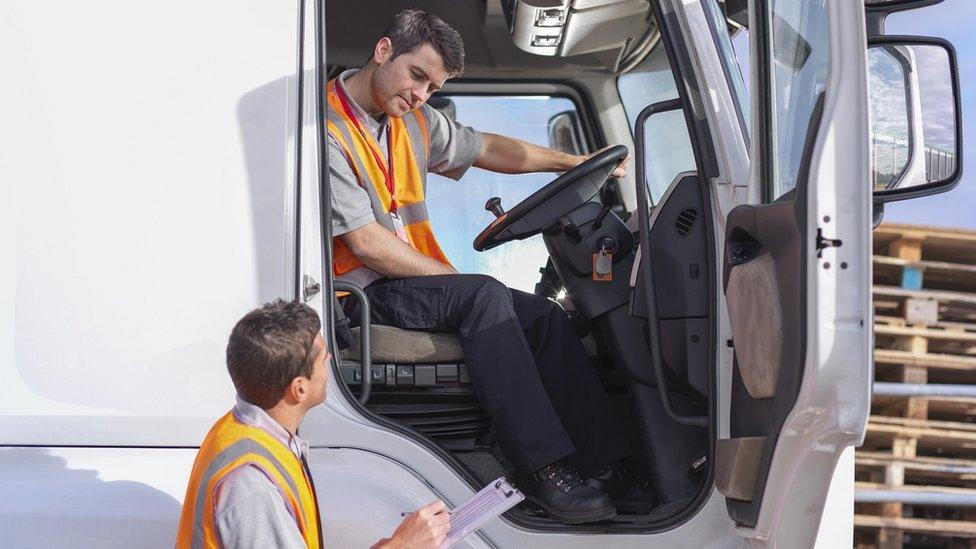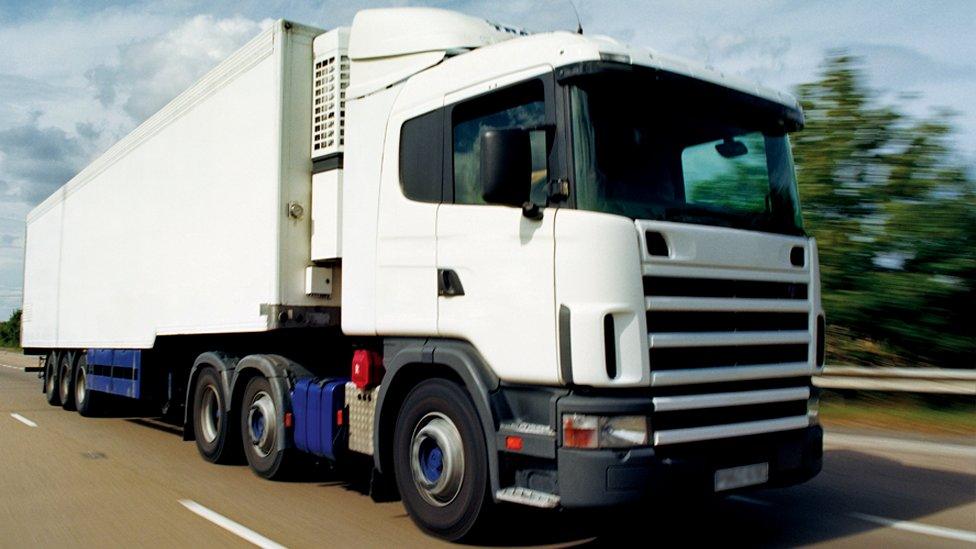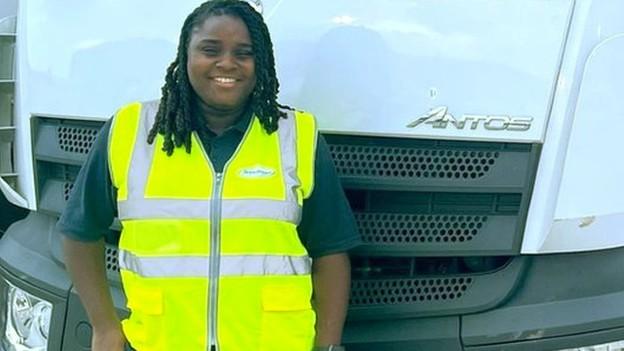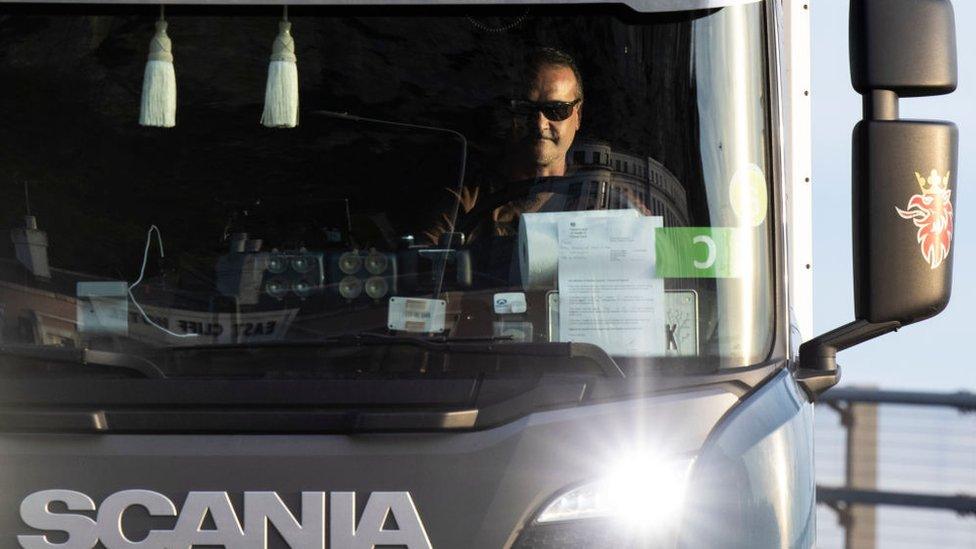Sector must improve lorry driver conditions or face tax, MPs say
- Published

The haulage industry should be given a two-year deadline to recruit more lorry drivers and improve facilities or face a new tax, a group of MPs has said.
The Transport Committee said the sector needed to "get its house in order".
Over the past year, a shortage of HGV drivers has contributed to supply problems, including at supermarkets and petrol stations.
But the Road Haulage Association (RHA) said many of the changes needed were outside of the industry's control.
The trade association said it broadly welcomed the committee's report but it was concerned the sector would not be able to make the necessary changes to avoid the proposed levy in just two years.
In its report, the Commons Transport Committee said the industry must help improve overnight facilities and pay for the training needed to drive a HGV, which is currently covered by drivers.
If it fails to deliver enough new drivers and facilities within two years, the government should introduce a new tax for the most profitable parts of the sector, such as large supermarkets, oil companies and online service giants, it said.
The proposed Supply Chain Levy would help fund the improvements needed, the committee said.
"If the industry won't deliver change, government should do so and send them the bill via increased taxes to those who produce and sell and make the most profits," said Conservative Huw Merriman, the committee's chairman.
The report also called for minimum standards for facilities, including security, clean showers, toilets, healthy food options and services for female drivers.
The committee said a lack of high-quality facilities for drivers to rest overnight was "a key reason" for people leaving the industry.
The report included testimony from drivers complaining of poor washing facilities, including dirty and vandalised showers.
One driver said there was also poor security at legal stopping places, claiming he would "pay £37 a night to sleep in my cab and have my tyres slashed" if he did not stay in a lay-by.
'Unreasonable'
Richard Smith, managing director at the RHA, said he welcomed "measures that will improve HGV drivers' experiences on the nation's roads and the way they're treated".
However, the association said that with firms facing huge financial pressures it was "unreasonable" for the sector to fund driver training alone.
A Department for Transport spokeswoman said the government had taken an "unprecedented" 33 measures so far to address the HGV driver shortage, including making 11,000 training places available through its Skills Bootcamps, boosting the number of lorry driver tests and investing in improvements to lorry parking facilities.
"Tackling global supply chain constraints remains a top priority for government and we'll continue to support the road freight sector through our interventions," she said.
Even before the Covid, there was already a shortage of lorry drivers in the UK, with poor conditions contributing to challenges recruiting and retaining workers.
During the pandemic many European drivers left the country and a large backlog of HGV driver tests built up, while Brexit has also contributed to shortages.
Related topics
- Published15 October 2021

- Published3 September 2021

- Published7 July 2021
